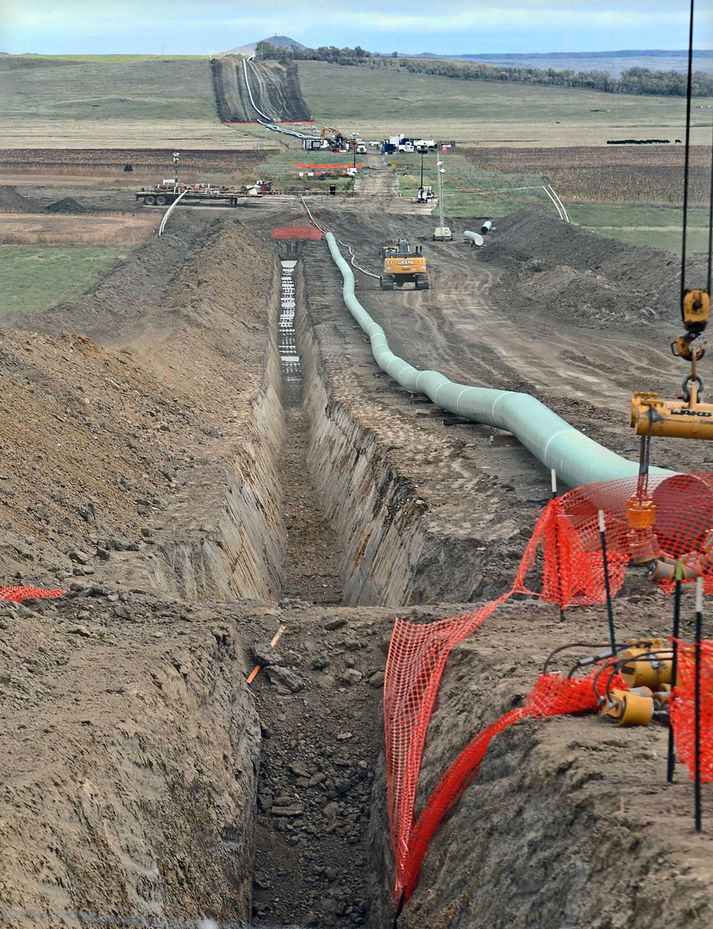[ad_1]

BISMARCK, N.D. (AP) – A hearing was scheduled for Friday to determine whether the Dakota Access oil pipeline should be allowed to continue operating without a key permit while the U.S. Army Corps of Engineers conducts an environmental review on the project.
U.S. District Judge James Boasberg wants the Corps to explain how it “expects to proceed” without a federal permit granting easement for the $3.8 billion pipeline to cross beneath Lake Oahe, a reservoir along the Missouri River that is maintained by the Corps.
The hearing in Washington, D.C., was originally scheduled for February. But the Corps filed a motion to postpone the hearing in order to allow officials from President Joe Biden’s administration more time to familiarize themselves with the case, including the 2016 lawsuit filed by the Standing Rock Sioux Reservation in an attempt to stop construction. The pipeline began operating in 2017 after President Donald Trump took office.
Boasberg in April 2020 ordered further environmental study after determining the Corps had not adequately considered how an oil spill under the Missouri River might affect Standing Rock’s fishing and hunting rights, or whether it might disproportionately affect the tribal community.
The $3.8 billion, 1,172-mile (1,886-kilometer) pipeline crosses beneath the Missouri River, just north of the Standing Rock Sioux Reservation that straddles the North Dakota-South Dakota border. The tribe, which draws its water from the river, says it fears pollution.
The pipeline was the subject of months of protests in 2016 and 2017, sometimes violent, during its construction. The tribe took legal action against the pipeline even after it began carrying oil from North Dakota across South Dakota and Iowa to a shipping point in Illinois in June 2017.
Former President Barack Obama’s administration originally rejected permits for the project, and the Corps prepared to conduct a full environmental review. In February 2017, after Trump took office, the agency scrapped the review and granted permits, concluding that running the pipeline under the Missouri River posed no significant environmental issues.
___
Kolpack reported from Fargo, North Dakota.
[ad_2]